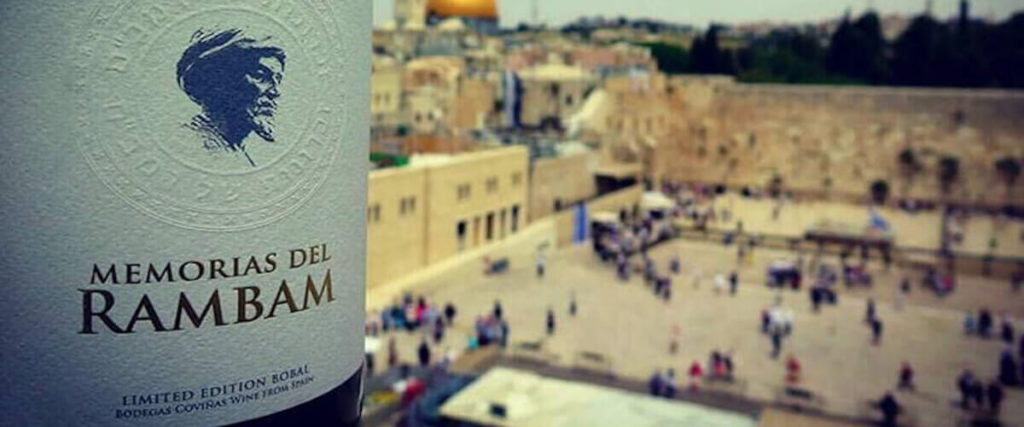Wine:
Wine is clearly labeled, and usually served in the original bottle. In case it is not kosher, the guest should find a polite way to explain to the host why he is refraining from drinking it. The same follows if the wine is served in decanters and there is no way to know what is its label. However, there is no need to be concerned or to conduct a research to find out if wine was used in cooking and if so, what wine. That is because most wines in the market today are technically kosher. The original prohibition was on wine which was libated in pagan worship, and was later expanded to include all wine made or even touched by a pagan. In today’s reality, two conditions for the prohibition are missing: 1) the wine is never touched; 2) Christianity is not considered paganism.
Some poskim expanded the prohibition even further, to wine opened in the presence of a pagan, even though it was not touched by him, and to non-observant Jews. Both these “stringencies” are tenuous and have little basis in Halakha. They are rather part of the attempt to use the concept of Kosher wine as a marker and a divider, so though one does not drink wine which was not labeled as kosher, he should not be worried about the possibility of that wine used for cooking.
Vinegar:
Vinegar was included in the original decree of Mishnaic sages against drinking pagan wine, because it was wine before it became vinegar. This only applies to their reality in which good wine would not be wasted, and only when the wine went bad it was used to make vinegar. Today it is very rare for wine to go bad in the wineries, and so vinegar is destined from the beginning of production to be vinegar and not drinking wine. This means that vinegar, including balsamic, does not need supervision. As a guest at a non-kosher household, one should not be concerned that the host had wine that went bad and he turned it into vinegar, and therefore could eat dishes which were prepared with vinegar, as well as use vinaigrettes (i.e. not only passive but also active use.)
There is one more detail I would like to discuss before concluding this series, that of food cooked by non-Jews, but before that, I would like to address an email I received from a concerned reader:
…I have to say that I am having a very hard time understanding and accepting the leniencies and the logic expressed in the Guest series. Rabbi Moshe Feinstein comments on the leniencies and common sense expressed then, would not apply today. Russia in 1934 is not the abundance of 2017. Someone who is not very strong in his/her belief, the Guest series, can be damaging. Did I miss something?
My answer is:
I have made it very clear at the beginning of the series that the halakhic solutions presented here are to be used by people per their discretion. No one can be forced to accept the invitation, but this series serves as a guide to understanding margins and flexibility. It could help you make the decision whether to go, and once there, how not to offend the host while not worrying about committing a grave sin of forbidden consumption.
R. Feinstein ruling, unfortunately, was not embraced by the orthodox community, and we are witnesses of the devastating results. The lack of trust and multiple competing kosher label have created an atmosphere of suspicion, judgment, divisiveness, and even animosity. They have fragmented the orthodox world and deepened the chasm between it and the rest of the Jewish community. Reb Moshe, in his sensitivity and understanding, probably predicted this sad reality and tried to circumvent it with his ruling.
The fact that our society is blessed with an abundance actually helps when there is trust, because we have no reason to assume that the host, who promised kosher food, will purchase non-kosher ingredients. If the argument is that people should not regularly eat non-kosher when kosher is easily available, it is not an unshakeable one. Buying and eating kosher is not easy and not cheap, and unless one brought was brought up in a certain way he will not be able to embrace this lifestyle.
Finally, what is lacking in today’s orthodox world is education! Blind obedience and black-and-white rules have created a divide between unquestioning followers and those who reject or abandon observance. The purpose of this series, as well as all of my Halakhic writing, is to encourage people to see the full picture, to understand the historical and social factors of Halakha, to consider emotions and sensitivities, and to ask the right questions. I believe this is the way to create bridges of understanding and to make one’s Jewish experience more meaningful, and, to judge by the response I am receiving, it is happening.









Ohr HaChaim Yomi – Emor